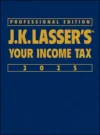Areas for Which Sales of Livestock Due to Drought Qualify for Deferral
When property is sold due to an involuntary conversion, gain is deferred if qualified replacement property is purchased within a replacement period. When livestock (other than poultry) is sold because of drought, there is an extended replacement period.
If a farmer or rancher is forced to sell livestock because of drought—an involuntary conversion—the usual four-year replacement period is extended until the end of the taxpayer’s first taxable year ending after the first drought-free year for the applicable region. For this purpose, the first drought-free year for the applicable region is the first 12-month period that (1) ends August 31; (2) ends in or after the last year of the taxpayer’s four-year replacement period; and (3) does not include any weekly period for which exceptional, extreme, or severe drought is reported for any location in the applicable region.
The IRS announced the counties in the U.S. for which the 12-month period ending on August 31, 2021, was not a drought-free year (Notice 2021-55). Taxpayers in these counties whose four-year replacement period is scheduled to expire at the end of 2021 qualify for the extension.
Modified ACRS (MACRS)
Depreciation methods applied to assets placed in service after 1986.



